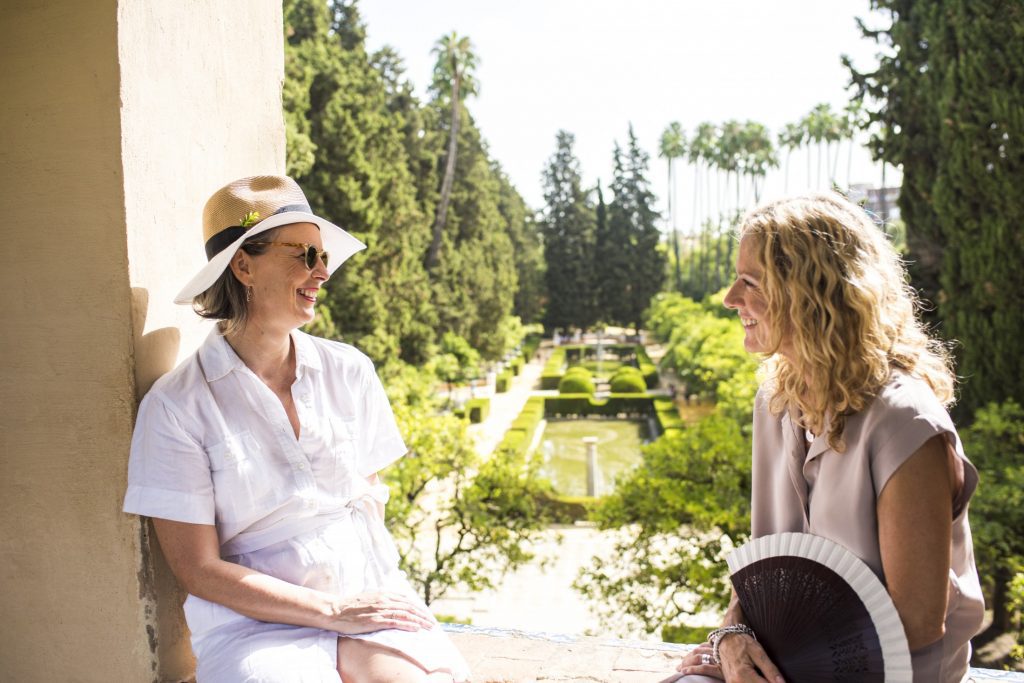Recently updated on August 26th, 2022 at 09:59 am
Dreaming about retiring to a Spanish villa or a Costa Rican beach? Whether you want to spend your golden years in the sunshine, be closer to family or friends, or make your retirement fund last a little longer, there are many things to think about before retiring abroad. From housing and healthcare to visas and taxes, here are 10 things to consider before taking the plunge.
1. Cost of living
Many people think about retiring abroad for economical reasons. You can get a lot more out of your retirement fund by moving somewhere with a lower cost of living such as Southeast Asia, Eastern Europe or South America. However, it’s vital to do your due diligence and research all the financial aspects of your dream destination before making the move.
When you’ve factored in the cost of everything from visas and health insurance to housing, food and transport, you’ll have a clearer idea of whether retiring overseas is a financially sound move for you. You’ll also need to check with your government rules on whether you can receive your retirement pension while living abroad and if you’ll need to pay tax.
When researching be sure to check out International Living Magazine’s annual Global Retirement Index. It lists the best places to retire around the world and includes an analysis of factors like securing visas, healthcare, climate, and cost of living.
RELATED CONTENT: 11 countries to move to for early retirement


2. Visas and residency
When looking at the best places to retire overseas, you’ll need to consider whether you can legally reside there. Every country has different rules and it’s important to start the visa process early and do it correctly. There’s a lot of paperwork which can take months and you’ll have to supply everything from passports and insurance information to your planned local residence and criminal records.
Many countries offer tourist visas or temporary residency permits and require you to live in the country for a certain number of years before you can apply for permanent residency. Some countries require you to pay a large sum of money to secure a permanent residency. For example, Thailand offers a 20-year residency permit for 2 million baht (around $57,000 USD) but it comes with extras like annual health checks, shopping discounts, and airport services.
Some countries, like Colombia and Panama, have special visas for retirees who can prove they are earning a certain amount of income per month and have private health insurance. Some countries offer residency by investment. For example, investors in Portugal and Greece can spend minimum amounts on property or investments and receive residency permits. For example, in Portugal, you can invest a minimum of €280,000 and receive a Golden Visa. Australia also has an investor retirement visa, however, it is expensive, has to be renewed every four years, and does not lead to citizenship.
If you have a parent or grandparent born in another country, you may be able to apply for full citizenship there and receive the associated benefits. Other countries also allow for dual citizenships by descent, such as Italy, Greece, Ireland, Portugal, Hungary, Costa Rica, and Australia.
RELATED CONTENT: 7 key steps to prepare for a happy, fulfilled retirement


3. Housing
Housing is one of the top considerations when retiring abroad. You may be keen to buy property in your new destination, but you’ll need to do lots of research to get to know the real estate market and home buying rules and standards. A safer option is to spend time renting first. That way, you can get to know the country and decide where you want to settle. The rental process is also very different from country to country, so be sure to look into it extensively. Avoid committing to a rental or putting any money down before arriving. Instead, spend a few days or weeks in a hotel, then move into your ideal rental.
RELATED CONTENT: You can retire and live the beach life for under $30,000 a year in these 9 locations
4. Healthcare
Healthcare is one of the most important considerations for anyone planning to move abroad. While some countries, like Australia, require proof of health insurance to live there, other countries, like the United States, have healthcare systems that are difficult or expensive to access for foreigners. Your best bet is to purchase comprehensive health insurance before you arrive. It should include emergency medical evacuation insurance for transport back to your home country in dire circumstances. You can also get in touch with other expat retirees in your chosen destination, to learn about their experiences and recommendations regarding the healthcare system and health insurance.
RELATED CONTENT: These 7 Trafalgar tours are absolute retirement travel goals


5. Local culture and language
An important part of retiring abroad is getting to know the local culture and language. When choosing your retirement destination, you’ll need to consider whether you’ll need to learn a new language and whether you’re willing to do this. While it’s not always necessary to become fluent, being functional in the local language will greatly enhance your lifestyle and will help you feel more involved and connected to your new home. Learning a language is also a fantastic challenge for your retirement and taking language classes is a great way to meet new people. If you’re not yet functional in the local language when moving, it can be a good idea to enlist the services of people who can speak your native language to help with visas, insurance, and housing.
But settling into a new country goes beyond the local language. You’ll also need to think about the local culture before choosing your dream destination. Do you prefer a lively social culture like Mexico or Thailand? Or do you prefer a quieter environment like New Zealand or Scandinavia? Are you an adventurous foodie or do you prefer to eat certain cuisines? Do you like to dress a certain way or are you comfortable dressing according to the local customs of your new destination? Think carefully about your ideal lifestyle and choose a destination where you’ll feel comfortable assimilating into the local culture.
RELATED CONTENT: 7 bucket list trips to take to celebrate your retirement
6. Making friends
You’ll need a web of support when making the leap and making new friends is one of the best parts of retiring abroad. Both locals and expat retirees are a valuable source of information and are often willing to help new people settle in. You can join expat groups online, such as through Facebook. Once you arrive, you can meet people face to face by joining a social group of like-minded people or getting involved in your local community. You can also use apps like Meetup to get to know the people in your area.
RELATED CONTENT: Why friendships are even more important in retirement


7. Climate
For many people, the best places to retire abroad are the sunny ones! Weather plays a huge part in the decision to retire overseas and many people dream of spending their golden years lounging in the sunshine or relaxing on the beach. If you love balmy summers and mild winters, you’ll love southern Europe like Spain, Greece and Italy. Or, if you love tropical weather and almost non-existent winters, you’ll probably head somewhere like southern Thailand. Be sure to do lots of research into the climate of your chosen destination, as you don’t want to be caught off guard with things like monsoon seasons or intense weather events like flooding or cyclones.
RELATED CONTENT: How to plan your world travel after retirement?
8. Distance
The point of retiring abroad is to get away somewhere new… But you should also consider how easy it is to get back to your motherland. When you retire, you may like to stay in contact and visit friends and family back home a few times a year – or they may want to visit you. In that case, you should choose a destination that’s a shorter flight away and has an accessible airport close by. You’ll also need to consider time differences. If you’re originally from the United States, accessible destinations might be Mexico or Costa Rica. If you’re from Europe, you might go for nearby retirement destinations like Spain, France, or Italy.


9. Taxes
So you’ve figured out your visas, residency permits, housing, and insurance. What about tax? Many expats are surprised to learn they still need to pay taxes in their homelands. While most retirees don’t plan to work and earn income abroad, they may still have to pay tax on withdrawings from retirement accounts, pensions, and investments. It’s a tricky area to navigate, so it’s best to speak with a tax accountant who is well experienced in tax concerns when retiring abroad.
RELATED CONTENT: Why you shouldn’t wait until retirement to start travelling
10. Take a trial run
You should always visit your chosen destination a few times before making the leap to retiring abroad. Many people like to do a ‘rehearsal trip’ and spend six to 12 months living in their new destination, before fully committing to retiring there. Other people like to make multiple trips at different times of the year and stay in different neighbourhoods to get a feel for the weather, living costs, infrastructure developments, and lifestyle year-round. Others like to live in their new destination part-time and split their time between two countries, rather than fully committing to one destination.
However you’d like to do it, taking a practice run or doing it part-time, will mitigate the risks of retiring abroad and will give you more clarity on where and how you’d like to retire in the future. And it’s the perfect opportunity to iron out all those financial and logistical considerations, and make sure your retirement abroad is the incredible experience you’ve dreamed about.
What are your top tips for retiring abroad? Let us know in the comments below…